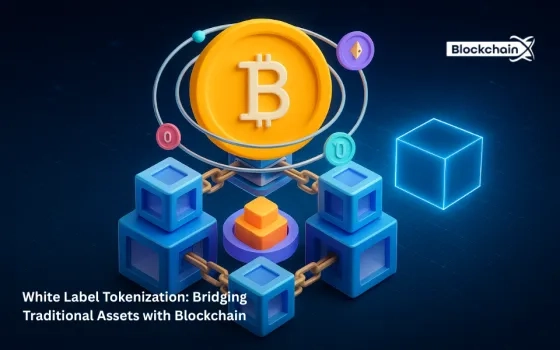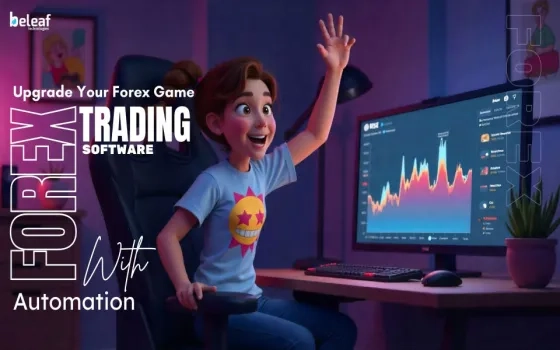The process of transferring property ownership has traditionally been fraught with bureaucracy, lengthy paperwork, and high costs. From verifying the legitimacy of documents to registering ownership with multiple government agencies, property transfers can take weeks, if not months. However, blockchain technology is increasingly providing a solution to these challenges, making property ownership transfer faster, more secure, and more transparent. By leveraging the unique capabilities of blockchain, platforms are reshaping the real estate sector and revolutionizing the way individuals and businesses buy, sell, and manage properties.
Understanding the Traditional Property Transfer Process
Before exploring blockchain's transformative impact, it’s important to understand the conventional process of transferring property ownership. In most countries, property transfer involves multiple steps, including:
-
Verification of Ownership: Ensuring the seller holds the legitimate title to the property. This often requires checking historical records and legal documentation.
-
Legal Documentation: Preparing sale agreements, title deeds, and contracts, typically involving lawyers or legal experts.
-
Payment and Escrow: Handling the financial transaction securely, often through banks or escrow agents, to ensure both parties meet their obligations.
-
Registration: Submitting documents to the local land registry or municipal authorities to officially update the property title.
-
Taxes and Fees: Paying applicable taxes, registration fees, and sometimes brokerage charges.
While this process is designed to protect buyers and sellers, it is often slow, costly, and prone to errors or fraud. Mistakes in documentation, disputes over ownership, or delayed verification can significantly prolong transactions and increase financial risk.
How Blockchain Technology Addresses These Challenges
Blockchain is a decentralized digital ledger that records transactions securely and immutably across multiple nodes. Each transaction is time-stamped and cryptographically secured, making it nearly impossible to alter or falsify records. This core functionality has several direct applications in property ownership transfer:
-
Immutable Property Records
Blockchain allows property titles to be digitized and recorded on a decentralized ledger. Once a property’s ownership is added to the blockchain, it becomes a permanent, verifiable record. This eliminates the risk of title fraud or tampering, which is a significant concern in conventional property transactions. Buyers and sellers can quickly verify ownership history without relying solely on government registries.
-
Smart Contracts for Automated Transactions
Smart contracts are self-executing agreements coded onto the blockchain. They automatically enforce the terms of a transaction when predefined conditions are met. In real estate, smart contracts can facilitate payment, title transfer, and regulatory compliance in one seamless process. For instance, when the buyer transfers the agreed-upon funds to the smart contract, ownership of the property is automatically updated on the blockchain, eliminating the need for intermediaries such as notaries or banks.
-
Reduced Costs and Faster Transfers
By minimizing the need for intermediaries, blockchain platforms significantly reduce transaction costs. Legal fees, escrow charges, and administrative expenses are lowered because smart contracts handle verification, execution, and record-keeping. Moreover, transfers that might traditionally take weeks or months can now be completed in hours, or even minutes, depending on the platform and regulatory framework.
-
Enhanced Transparency and Trust
Every transaction on a blockchain is visible to participants on the network and cannot be altered once recorded. This transparency builds trust among buyers, sellers, and regulators. Disputes over ownership, transaction history, or compliance can be resolved more efficiently, reducing legal complexities.
-
Global Accessibility
Blockchain platforms enable cross-border property transactions by providing a secure and standardized system for recording ownership. Investors or buyers from different countries can access the blockchain ledger, verify property titles, and execute smart contracts without the constraints of local bureaucratic procedures. This global accessibility opens up real estate markets to a wider pool of buyers and capital.
Real-World Use Cases of Blockchain in Property Transfers
Several blockchain platforms and real estate tokenization projects have already demonstrated the potential of this technology in simplifying property ownership transfers:
1. Propy
Propy is a global real estate platform that uses blockchain to streamline international property transactions. Buyers and sellers can complete the entire property transfer process online, from signing agreements to recording the deed on the blockchain. Propy’s platform ensures that ownership is verified and securely stored, reducing the risks associated with cross-border transactions.
2. Ubitquity
Ubitquity offers a blockchain-based solution for recording property titles and documents. By integrating blockchain into local property registries, Ubitquity allows governments and real estate professionals to maintain an immutable and transparent record of property ownership, simplifying verification and transfer processes.
3. ATLANT
ATLANT focuses on tokenizing real estate assets, enabling fractional ownership and blockchain-based transfers. Property shares can be bought and sold on the platform, with smart contracts ensuring legal compliance and automatic updating of ownership records. This not only simplifies traditional transfers but also democratizes access to property investment.
4. Switzerland’s Canton of Zug
The Swiss city of Zug, also known as "Crypto Valley," has experimented with blockchain-based property transfers. Pilot projects have demonstrated that registering land titles and executing property sales on the blockchain can significantly reduce administrative overhead while improving security and transparency.
Tokenization: Transforming Property into Digital Assets
One of the most significant innovations brought by blockchain in real estate is tokenization. Tokenization involves representing a property or its share as a digital token on a blockchain. This has several benefits:
Fractional Ownership
Investors can purchase fractions of a property through tokens, lowering the entry barrier to real estate investment. Tokenization allows multiple investors to own a part of a property, with ownership stakes securely recorded on the blockchain. This opens opportunities for smaller investors who previously could not afford high-value properties, democratizing access to premium real estate assets. It also allows for more diversified investment strategies, where investors can spread capital across multiple properties rather than committing to a single asset.
Liquidity
Traditional real estate is illiquid because selling a property can take months. Tokenized properties can be traded on blockchain marketplaces, allowing investors to buy or sell their stakes more quickly and efficiently. This increased liquidity makes real estate a more dynamic and accessible investment option. In addition, tokenized assets can be fractionalized and sold in secondary markets, creating new avenues for real-time valuation and trading that were previously impossible in traditional real estate markets.
Automated Compliance
Regulatory compliance is embedded into smart contracts, ensuring that token transfers adhere to legal requirements. This reduces the risk of fraud or non-compliance during property ownership transfers. Automated compliance also streamlines the entire transaction process, reducing paperwork and administrative delays, and providing investors with greater confidence in the security and legality of their investments.
Global Investment Opportunities
Tokenization enables investors from different regions to access international real estate markets without the complications of local legal systems. This enhances capital flow and provides broader investment options. Additionally, global investors can diversify their portfolios geographically, mitigating local market risks and benefiting from emerging real estate markets worldwide. Tokenization effectively bridges the gap between local property markets and global capital, creating a more inclusive and efficient investment ecosystem.
Enhancing User Experience Through Blockchain Platforms
Beyond ownership and transactions, blockchain platforms also simplify property management and user experience. Platforms increasingly integrate features such as digital identity verification, AI-driven property valuation, and IoT-enabled property monitoring. This means buyers, sellers, and investors can track property status, manage leases, and even automate maintenance schedules while keeping ownership records secure on the blockchain.
Blockchain platforms can also integrate dispute resolution mechanisms. By embedding arbitration clauses and automated compliance checks into smart contracts, disputes between buyers and sellers can be resolved more quickly, eliminating the need for costly court proceedings. This level of automation not only improves efficiency but also reduces stress and uncertainty for all parties involved.
Regulatory Considerations and Challenges
While blockchain simplifies property transfers, regulatory and legal challenges remain:
-
Legal Recognition of Digital Titles
Not all jurisdictions recognize blockchain-based property records as legally binding. Governments must adapt existing laws to accommodate digital titles and smart contract-based transfers. Some countries, like Sweden and the UAE, are actively piloting blockchain land registries, but widespread adoption is still in progress.
-
Data Privacy and Security
While blockchain is inherently secure, the handling of sensitive personal information, such as buyer and seller identities, must comply with privacy regulations like GDPR. Platforms must balance transparency with privacy protection.
-
Integration with Existing Systems
Most property transfers still involve traditional registries and legal systems. Integrating blockchain solutions with existing infrastructure requires collaboration between government authorities, real estate professionals, and technology providers.
-
Technical and Adoption Barriers
Blockchain platforms require technical literacy and reliable internet access. Users unfamiliar with digital wallets, keys, or smart contracts may face difficulties in adoption. Education and user-friendly interfaces are essential for broader acceptance.
Advantages for Stakeholders
1. Buyers
Buyers benefit from faster verification of ownership, reduced risk of fraud, and streamlined transactions. They can also access a wider range of investment opportunities through tokenized properties, including international markets that were previously difficult to enter. Tokenization provides transparency in ownership history and property valuation, giving buyers more confidence in their investment decisions. Additionally, automated smart contracts reduce paperwork and minimize the chances of errors or delays during property acquisition.
2. Sellers
Sellers can execute transactions more efficiently, reduce dependence on intermediaries, and reach global buyers through blockchain-enabled platforms. Tokenization allows sellers to fractionalize properties, attracting multiple investors and potentially increasing overall demand. With digital records stored on a blockchain, sellers also benefit from secure, verifiable proof of ownership and transaction history, which simplifies audits and compliance.
3. Governments and Regulators
Governments can maintain more accurate, tamper-proof property records. Blockchain reduces administrative costs and improves transparency, helping to prevent disputes and corruption in property transactions. Smart contracts can also automatically enforce compliance with local laws and regulations, minimizing legal complications. By digitizing property records, regulators can better track ownership changes, tax obligations, and land use, leading to a more efficient and accountable real estate ecosystem.
4. Investors
Investors gain access to fractional ownership opportunities, higher liquidity, and transparent transaction histories, making real estate a more attractive and flexible asset class. Tokenized properties can be traded on secondary markets, providing opportunities for portfolio diversification and faster returns. Additionally, blockchain-based systems enhance investor confidence through verifiable records, automated compliance, and reduced reliance on intermediaries, making the investment process more secure and efficient.
Future Outlook
Blockchain adoption in real estate is poised for rapid growth. As technology matures, more governments and financial institutions are expected to integrate blockchain into property registries and transaction platforms. Cross-border property investments will become increasingly seamless, with blockchain enabling instant verification of ownership, automated compliance, and frictionless transfers.
Additionally, the combination of blockchain with AI, IoT, and tokenization is likely to create a fully digital property ecosystem. Investors could buy tokenized shares of properties, monitor their performance in real-time, and even participate in decentralized governance of property management. These developments will make property investment more accessible, efficient, and transparent than ever before.
Conclusion
Blockchain technology is transforming property ownership transfer by providing a secure, transparent, and efficient alternative to traditional processes. Through immutable records, smart contracts, tokenization, and global accessibility, blockchain platforms reduce costs, prevent fraud, and accelerate transactions. While regulatory and technical challenges remain, pilot projects around the world demonstrate the potential of blockchain to simplify property ownership transfer and make real estate more accessible and inclusive. As adoption grows, blockchain could become the standard for property transactions, fundamentally reshaping the real estate industry and providing unprecedented opportunities for buyers, sellers, investors, and governments alike.














